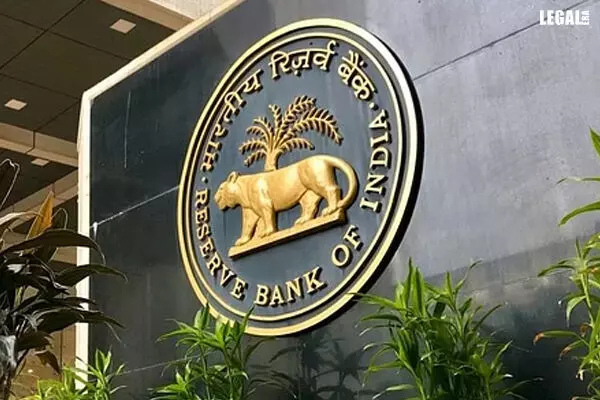- Home
- News
- Articles+
- Aerospace
- Artificial Intelligence
- Agriculture
- Alternate Dispute Resolution
- Arbitration & Mediation
- Banking and Finance
- Bankruptcy
- Book Review
- Bribery & Corruption
- Commercial Litigation
- Competition Law
- Conference Reports
- Consumer Products
- Contract
- Corporate Governance
- Corporate Law
- Covid-19
- Cryptocurrency
- Cybersecurity
- Data Protection
- Defence
- Digital Economy
- E-commerce
- Employment Law
- Energy and Natural Resources
- Entertainment and Sports Law
- Environmental Law
- Environmental, Social, and Governance
- Foreign Direct Investment
- Food and Beverage
- Gaming
- Health Care
- IBC Diaries
- In Focus
- Inclusion & Diversity
- Insurance Law
- Intellectual Property
- International Law
- IP & Tech Era
- Know the Law
- Labour Laws
- Law & Policy and Regulation
- Litigation
- Litigation Funding
- Manufacturing
- Mergers & Acquisitions
- NFTs
- Privacy
- Private Equity
- Project Finance
- Real Estate
- Risk and Compliance
- Student Corner
- Take On Board
- Tax
- Technology Media and Telecom
- Tributes
- Viewpoint
- Zoom In
- Law Firms
- In-House
- Rankings
- E-Magazine
- Legal Era TV
- Events
- Middle East
- Africa
- News
- Articles
- Aerospace
- Artificial Intelligence
- Agriculture
- Alternate Dispute Resolution
- Arbitration & Mediation
- Banking and Finance
- Bankruptcy
- Book Review
- Bribery & Corruption
- Commercial Litigation
- Competition Law
- Conference Reports
- Consumer Products
- Contract
- Corporate Governance
- Corporate Law
- Covid-19
- Cryptocurrency
- Cybersecurity
- Data Protection
- Defence
- Digital Economy
- E-commerce
- Employment Law
- Energy and Natural Resources
- Entertainment and Sports Law
- Environmental Law
- Environmental, Social, and Governance
- Foreign Direct Investment
- Food and Beverage
- Gaming
- Health Care
- IBC Diaries
- In Focus
- Inclusion & Diversity
- Insurance Law
- Intellectual Property
- International Law
- IP & Tech Era
- Know the Law
- Labour Laws
- Law & Policy and Regulation
- Litigation
- Litigation Funding
- Manufacturing
- Mergers & Acquisitions
- NFTs
- Privacy
- Private Equity
- Project Finance
- Real Estate
- Risk and Compliance
- Student Corner
- Take On Board
- Tax
- Technology Media and Telecom
- Tributes
- Viewpoint
- Zoom In
- Law Firms
- In-House
- Rankings
- E-Magazine
- Legal Era TV
- Events
- Middle East
- Africa
RBI and CBUAE sign MoUs to promote local currencies for cross-border transactions

RBI and CBUAE sign MoUs to promote local currencies for cross-border transactions
The common framework would promote the use of the rupee and the dirham
The Reserve Bank of India and the Central Bank of the United Arab Emirates (CBUAE) have signed two MoUs related to the promotion of local currencies for cross-border transactions. The Indian payment system UPI (Unified Payments Interface) has been linked with the UAE’s IPP (Instant Payment Platform).
It would help in establishing a common framework for the promotion of the use of local currencies, i.e., the Indian Rupee (INR) and the UAE Dirham (AED) for cross-border transactions.
The next MoU would help the banks in interlinking their payment and messaging system with UPI and IPP.
The RBI stated, "The MoU on establishing a framework for the use of local currencies for transactions between India and UAE aims to put in place a Local Currency Settlement System (LCSS) to promote the use of INR and AED bilaterally.”
The regulatory body explained that LCSS would cover all current account transactions and permitted capital account transactions. It would enable exporters and importers to invoice and pay in their respective domestic currencies, enabling the development of an INR-AED foreign exchange market. It added that it would promote investments and remittances between the two countries.
The RBI further said, “The use of local currencies would optimize transaction costs and settlement time for transactions, including for remittances from Indians residing in the UAE.”
Apart from this, it also involved linking respective Card Switches (RuPay switch and UAE switch) and exploring the linking of payments messaging systems SFMS of India with the messaging system in the UAE.
The RBI stated that the UPI-IPP linkage would enable the users in both countries to make fast, convenient, safe, and cost-effective cross-border fund transfers. The linking of Card Switches would facilitate the mutual acceptance of domestic cards and the processing of card transactions. Also, the linkage of messaging systems was aimed to facilitate bilateral financial messaging between India and the UAE.
The MoUs were signed by the Governor of the Reserve Bank of India Shaktikanta Das and the Governor of the Central Bank of UAE Khaled Mohamed Balama. These were exchanged in the presence of Indian Prime Minister Narendra Modi and UAE President Sheikh Mohamed Bin Zayed Al Nahyan.



